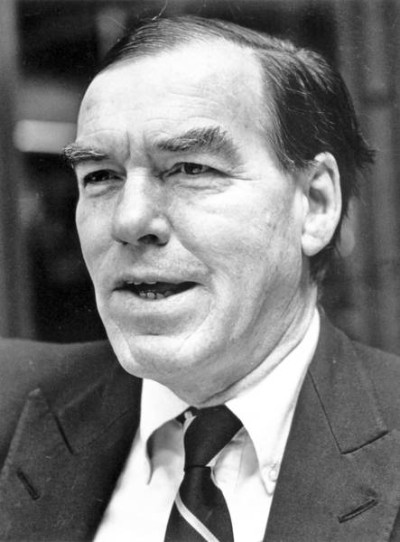John Keegan (John Keegan)

Keegan was born in Clapham, London, on 15 May 1934, to a family of Irish Catholic extraction. His father saw active service in the First World War. At the age of 13 Keegan contracted orthopaedic tuberculosis, which subsequently affected his gait. The long-term effects of his tuberculosis rendered him unfit for military service, and the timing of his birth made him too young for service in the Second World War, as mentioned in his works as an ironic observation on his profession and interest. The illness also interrupted his education during his teenage years; however, his education included a period at King’s College, Taunton, and two years at Wimbledon College, which led to entry to Balliol College, Oxford, in 1953. Following graduation he worked at the American Embassy in London for three years.
In 1960 he was appointed to a lectureship in Military History at the Royal Military Academy Sandhurst, the training establishment for officers of the British Army. Holding the post for 26 years, he became senior lecturer in military history during his tenure. During this period he also held a visiting professorship at Princeton University and was Delmas Distinguished Professor of History at Vassar College. Leaving the academy in 1986 Keegan joined the Daily Telegraph as a Defence Correspondent and remained with the publication as Defence Editor until his death, also writing for the American conservative website, National Review Online. In 1998 he wrote and presented the BBC’s Reith Lectures, entitled War in our World.
Keegan’s books include a traditional battle-by-battle coverage of conflict, experience of the individual, historical causes of military events, technological change in warfare, military strategy, and challenges of leadership. He wrote mainly for the educated non-specialist reader. His histories of war include those of the First and Second World Wars. His work examined warfare throughout history, including human prehistory and the classical era; however the majority of his work concentrated on the 14th Century onwards to modern conflict of the 20th and 21st Centuries.
In A History of Warfare, Keegan outlined the development and limitations of warfare from prehistory to the modern era. It looked at various topics, including the use of horses, logistics, and “fire”. One key concept put forward was that war is inherently cultural. In the introduction, he rigorously denounced the idiom “war is a continuation of policy by other means”, rejecting on its face “Clausewitzian” ideas. Keegan’s discussion of Clausewitz was, however, heavily criticised as uninformed and inaccurate, by writers like Peter Paret, Christopher Bassford, and Richard M. Swain. In another controversial position, Keegan claimed that cultural forces, not technology, produced the enhanced mayhem of the World Wars. Specifically, Keegan stated that mandatory public education created a homogenised populace that was more willing to accept conscription and other governmental demands.
He also contributed to work on historiography in modern conflict. With Richard Holmes he wrote the BBC documentary Soldiers, a history of men in battle. Frank C. Mahncke wrote that Keegan is seen as being “among the most prominent and widely read military historians of the late twentieth century”. In a book-cover blurb extracted from a more complex article, Sir Michael Howard wrote, “at once the most readable and the most original of living historians”. Keegan’s Fields of Battle: The Wars for North America, which gave accounts of many of the wars fought on the soil of North America, also contained opening and closing essays on his own personal relationship to America. He continued his interest in American military history with the publication of his book The American Civil War (2009, Hutchinson). Keegan died on 2 August 2012 of natural causes at his home in Kilmington, western England. He is survived by his wife, their two daughters and two sons.
Born
- May, 15, 1934
- London, England
Died
- August, 02, 2012
- Kilmington, Wiltshire, England



